- Home
- Mario Puzo
The Fourth K Page 25
The Fourth K Read online
Page 25
CHAPTER
14
Thursday
Washington
Matthew Gladyce, the press secretary to the President, knew that in the next twenty-four hours he would make the most important decision of his professional life. It was his job to control the responses of the media to the tragic and world-shocking events of the last three days. It would be his job to inform the people of the United States just exactly what their President was doing to cope with these events, and to justify his actions. Gladyce had to be very careful.
Now on this Thursday morning after Easter, in the middle of the crisis fireball, Matthew Gladyce cut himself off from direct contact with the media. His junior assistants held the meetings in the White House Press Conference Room but were limited to handing out carefully composed press releases and ducking shouted questions.
Matthew did not answer the phones constantly ringing in his office; his secretaries screened all his calls and brushed off insistent reporters and high-powered TV commentators trying to call in markers he owed them. It was his job to protect the President of the United States.
Matthew Gladyce knew from his long experience as a journalist that there was no ritual more revered in America than the traditional insolence of the print and TV media toward important members of the establishment. Imperious TV anchor stars shouted down affable Cabinet members, knocked chips off the shoulders of the President himself, grilled candidates for high office with the ferocity of prosecuting attorneys. The newspapers printed libelous articles in the name of free speech. At one time he had been a part of all this and even admired it. He had enjoyed the inevitable hatred that every public official has for representatives of the media. But three years as press secretary had changed this. Like the rest of the administration—indeed, like all government figures throughout history—he had come to distrust and devalue that great institution of democracy called free speech. Like all authority figures, he had come to regard it as assault and battery. The media were sanctified criminals who robbed institutions and private citizens of their good name. Just to sell their newspapers and commercials to three hundred million people.
And today he would not give those bastards an inch. He was going to throw his fastball by them.
He thought back on the last four days and all the questions he had fielded from the media. The President had cut himself off from all direct communication and Matthew Gladyce had carried the ball. On Monday it had been: “Why haven’t the hijackers made any demands? Is the kidnaping of the President’s daughter linked to the killing of the Pope?” Those questions eventually answered themselves, thank God. Now it was established. They were linked. The hijackers had made their demands.
Gladyce had issued the press release under the direct supervision of the President himself. These events were a concerted attack on the prestige and worldwide authority of the United States. Then the murder of the President’s daughter and the stupid fucking questions: “How did the President react when he heard of the murder?” Here Gladyce had lost his temper. “What the fuck do you think he felt, you stupid bastard?” he told the anchor person. Then there had been another stupid question: “Does this bring back memories of when the President’s uncles were murdered?” At that moment Gladyce decided he would leave these press conferences to his juniors.
But now he had to take the stage. He would have to defend the President’s ultimatum to the Sultan of Sherhaben. He would leave out the threat to destroy the Sultanate of Sherhaben. He would say that if the hostages were released and Yabril imprisoned, the city of Dak would not be destroyed—in language to leave him an out when Dak was destroyed. But most important of all was that the President of the United States would go on television in the afternoon with a major address to the nation.
He glanced out of the window of his office. The White House was surrounded by TV trucks and media correspondents from all over the world. Well, fuck them, Gladyce thought. They would only know what he wanted them to know.
Thursday
Sherhaben
The Envoys of the United States arrived in Sherhaben. Their plane set down on a runway far from the hostage lane commanded by Yabril and still surrounded by Sherhaben troops. Behind those troops were the hordes of TV trucks, media correspondents from all over the world and a vast crowd of onlookers who had traveled from the city of Dak.
The ambassador of Sherhaben, Sharif Waleeb, had taken pills to sleep through most of the voyage. Bert Audick and Arthur Wix had talked, Audick trying to persuade Wix to modify the President’s demands so that they could get the release of the hostages without any drastic action.
Finally Wix told Audick, “I have no leeway to negotiate. I have a very strict brief from the President—they’ve had their fun and now they are going to pay.”
Audick said grimly, “You’re the national security adviser—for God’s sake, advise.”
Wix said stonily, “There is nothing to advise. The President has made his decision.”
Upon arrival at the Sultan’s palace, Wix and Audick were escorted to their palatial suites by armed guards. Indeed the palace seemed to be overrun with military formations. Ambassador Waleeb was ushered into the presence of the Sultan, where he formally presented the ultimatum documents.
The Sultan did not believe in the threat, thinking that anybody could terrify this little man. He said, “And when Kennedy told you this, how did he appear? Is he a man who utters such wild threats merely to frighten? Would his government even support such an action? He would be gambling his whole political career on this one throw of the dice. Is it not merely a negotiating ploy?”
Waleeb rose from the gold brocade chair in which he had been sitting. Suddenly his tiny puppetlike figure became impressive. He had a good voice, the Sultan noted. “Your Highness,” Waleeb said. “Kennedy knew exactly what you would say, word for word. Within twenty-four hours after the destruction of Dak, if you do not comply with his demands, all Sherhaben will be destroyed. And that is why Dak cannot be saved. That is the only way he can convince you of his most serious intent. He also said that after Dak is destroyed you will agree to his demands but not before. He was calm, he smiled. He is no longer the man he was. He is Azazel.”
Later the two envoys of the President of the United States were brought to a beautiful reception room that included air-conditioned terraces and a swimming pool. They were attended by male servants in Arab dress who brought them food and drinks that were not alcoholic. Surrounded by counselors and bodyguards, the Sultan greeted them.
Ambassador Waleeb made the introductions. Bert Audick the Sultan knew. They had been closely locked on past oil deals. And Audick had been his host the several times he had visited America, a discreet and obliging host. The Sultan greeted Audick warmly.
The second man was the surprise, and in the lurch of his heartbeat the Sultan recognized the presence of danger and began to believe the reality of Kennedy’s threat. For the second of the tribunes, as the Sultan thought of them, was none other than Arthur Wix, the President’s national security adviser, and a Jew. He was by reputation the most powerful military figure in the United States and the ultimate enemy of the Arab states in their fight against Israel. The Sultan noted that Arthur Wix did not offer his hand, but only bowed with cold courtesy.
The next thought in the Sultan’s mind was that if the President’s threat was real, why would he send such a high official into such danger? What if he took these tribunes as hostages, would they not perish in any attack on Sherhaben? And indeed would Bert Audick come and risk a possible death? From what he knew of Audick, certainly not. So that meant there was room for negotiation and that the Kennedy threat was a bluff. Or, Kennedy was simply a madman and did not care what happened to his envoys and would carry out his threat anyway. He looked around at his reception room that served as his chamber of state. It was far more luxurious than anything in the White House. The walls were painted gold, the carpets were the most expensive in the world with exquisite patterns t
hat could never be duplicated, the marble the purest and most intricately carved. How could all this be destroyed?
The Sultan said with quiet dignity, “My ambassador has given me the message from your President. I find it very hard to believe that the leader of the free world would dare to utter such a threat, much less implement it. And I am at a loss. What influence can I have over this bandit Yabril? Is your President another Attila the Hun? Does he imagine he rules ancient Rome rather than America?”
It was Audick who spoke first. He said, “Sultan Maurobi, I came here as your friend, to help you and your country. The President means to do as he threatens. It seems you have no alternative, you must give up this man Yabril.”
The Sultan was quiet for a long moment, then turned to Arthur Wix. He said ironically, “And what are you doing here? Can America spare an important man like yourself if I refuse to comply with your President’s demands?”
“The fact that you would hold us as hostages if you refused those demands was carefully discussed,” Arthur Wix said. He was absolutely impassive. He did not show the anger and hatred he was feeling for the Sultan. “As the head of an independent country you are quite justified in your anger and in your counterthreat. But that is the very reason I am here. To assure you that the necessary military orders have been given. As the commander in chief of American military forces the President has that power. The city of Dak will shortly be no more. Twenty-four hours after that, if you do not comply, the country of Sherhaben will also be destroyed. All this will be no more”—he made a sweeping gesture around the room—“and you will be living on the charity of the rulers of your neighboring countries. You will be a Sultan still, but you will be a Sultan of nothing.”
The Sultan did not show his rage. He turned to the other American and said, “Do you have anything to add?”
Bert Audick said almost slyly, “There is no question that Kennedy means to carry out his threat. But there are other people in our government who disagree. This action may doom his presidency.” He said almost apologetically to Arthur Wix, “I think we have to bring this out in the open.”
Wix looked at him grimly. He had feared this possibility. Strategically it was always possible that Audick might try to make an end run. The bastard was going to try to undermine the whole deal. Just to save his fucking fifty billion.
Arthur Wix looked venomously at Audick and said to the Sultan, “There is no room for negotiation.”
Audick gave Wix a defiant glance and then addressed the Sultan again, “I think it fair, based on our long relationship, to tell you there is one hope. And I feel I must do it now in front of my countryman, rather than in a private audience with you as I could easily do. The Congress of the United States is holding a special session to impeach President Kennedy. If we can announce the news that you are releasing the hostages, I guarantee Dak will not be destroyed.”
The Sultan said, “And I will not have to give up Yabril?”
“No,” Audick said. “But you must not insist on the release of the Pope’s killer.”
The Sultan, for all his good manners, could not completely disguise the note of glee when he said, “Mr. Wix, is this not a more reasonable solution?”
“My President impeached because a terrorist murdered his daughter? And then the murderer goes free?” Wix said. “No, it is not.”
Audick said, “We can always get that guy later.”
Wix gave him a look of such contempt and hatred that Audick knew that this man would be his enemy for life.
The Sultan said, “In two hours we will all meet with my friend Yabril. We will dine together, and come to an agreement. I will persuade him with sweet words or force. But the hostages will go free as soon as we learn that the city of Dak is safe. Gentlemen, you have my promise as a Muslim and as the ruler of Sherhaben.”
Then the Sultan gave orders for his communications center to notify him of the congressional vote as soon as it was known. He had the American envoys escorted to their rooms to bathe and change their clothing.
The Sultan had ordered Yabril to be smuggled off the plane and brought to the palace. Yabril was made to wait in the huge reception hall, and he noted that it was filled with the Sultan’s uniformed security guards. There had been other signs that the palace was on an alert status. Yabril sensed immediately that he was in danger, but there was nothing to be done.
When Yabril was ushered into the Sultan’s reception room, he was relieved that the Sultan embraced him. Then the Sultan briefed him on what happened with the American tribunes. The Sultan said, “I promised them you would release the hostages without further negotiations. Now we await the decision of the American Congress.”
Yabril said, “But that means that my friend Romeo has been deserted by me. It is a blow to my reputation.”
The Sultan smiled and said, “When they try him for murder of the Pope, your cause will gain that much more publicity. And the fact that you go free after that coup and murdering the daughter of the President of the United States, that is glory. But what a nasty little surprise you gave me at the end. To kill a young girl in cold blood. That was not to my liking and really not clever.”
“It made a certain point,” Yabril said. “I never intended for her to get off that plane alive.”
“And now you must be satisfied,” the Sultan said. “In effect you have unseated the President of the United States. Which was beyond your wildest dreams.”
The Sultan gave a command to one of his retinue. “Go to the quarters of the American, Mr. Audick, and bring him here to us.”
When Bert Audick came into the room, he did not offer to shake hands with Yabril or make any gesture of friendliness. He simply stared. Yabril bowed his head and smiled. He was familiar with these types, these bloodsuckers of Arabian lifeblood, who made contracts with Sultans and kings to enrich America and other foreign states.
The Sultan said, “Mr. Audick, please explain to my friend the mechanics of how your Congress will dispose of your President.”
Audick did so. He was convincing, Yabril believed him. But he asked, “What if something goes wrong and you do not get your two-thirds vote?”
Audick said grimly, “Then you, me and the Sultan here are shit out of luck.”
President Francis Xavier Kennedy looked over the papers that Matthew Gladyce gave him and then initialed them. He saw the look of satisfaction on Gladyce’s face and knew exactly what it meant. That together they were putting one over on the American public. At another time, in other circumstances, he would have squelched that smug look, but Francis Kennedy realized that this was the most dangerous single moment in his political career and he must use every weapon available.
This evening the Congress would try to impeach him; they would use the vague wording of the Twenty-fifth Amendment to the Constitution in the attempt to do so. Maybe he could win the battle in the long run, but by then it would be too late. Bert Audick would arrange the release of the hostages, the escape of Yabril in return for the remaining hostages. The death of his daughter would go unavenged; the murderer of the Pope would go free. But Kennedy counted on his appeal to the nation over TV to launch such a wave of protesting telegrams as to make Congress waver. He knew the people would support his action; they were outraged at the murder of the Pope and of his daughter. They felt his heartbreak. And at that moment he felt a fierce communion with the people. They were his allies against the corrupt Congress, the pragmatic and merciless businessmen like Bert Audick.
All through his life he had felt for the tragedies of the unfortunate, the mass of people struggling through life. Early in his career he had sworn to himself that he would never be corrupted by that love for money that seemed to generate the accomplishments of gifted men. He grew to despise the power of the rich, money used as a sword. But he had always felt, he realized now, that he was some sort of champion who was invulnerable and above the woes of his fellowman. He had never before grasped the hatred that the underclass must feel. But he felt i
t now. Now the rich, the powerful, would bring him down, now he must win for his own sake.
But he refused to be distracted by hatred. His mind must be clear in the coming crisis. Even if he should be impeached, he must make sure he would return to power. And then his plans would be far-reaching. The Congress and the rich might win this battle, but he saw clearly that they must lose the war. The people of the United States would not suffer humiliation gladly, there would be another election in November. This whole crisis could result in his favor even if he lost; his personal tragedy would be one of his weapons. But he had to be careful to hide his long-range plans even from his staff.
Kennedy understood he was preparing himself for ultimate power. There was no other course except to submit to defeat and all its anguish, and that he could never survive.
On Thursday afternoon, nine hours before the special session of Congress that would impeach the President of the United States, Francis Kennedy met with his advisers, his staff and Vice President Helen Du Pray.
It was to be their last strategy session before the congressional vote, and they all knew the enemy had the necessary two thirds. Kennedy saw immediately that the mood in the room was one of depression and defeat.
He gave them all a cheerful smile and opened the meeting by thanking the CIA chief, Theodore Tappey, for not having signed the impeachment proposal. Then he turned to Vice President Du Pray and laughed, a genuine good-humored laugh.
“Helen,” he said, “I wouldn’t be in your shoes for anything in the world. Do you realize how many enemies you made when you refused to sign the impeachment papers? You could have been the first woman President of the United States. Congress hates you because without your signature they can’t get away with it. Men will hate you for being so magnanimous. Feminists will consider you a traitor. God, how did an old pro like you get in such a fix? By the way, I want to thank you for your loyalty.”

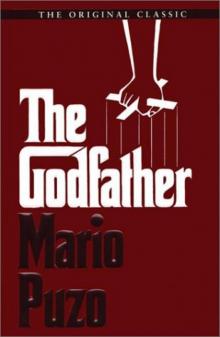 The Godfather
The Godfather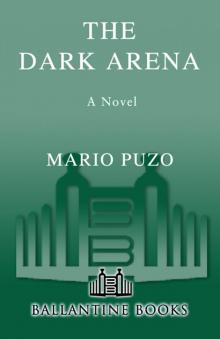 The Dark Arena
The Dark Arena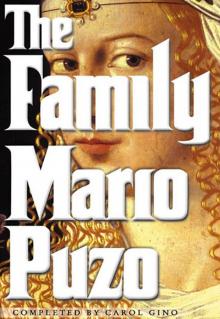 The Family
The Family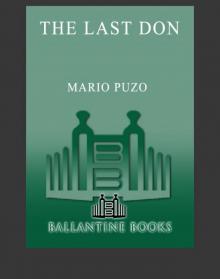 Last Don
Last Don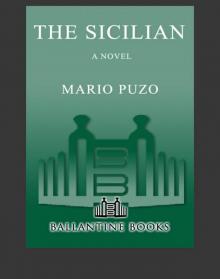 The Sicilian
The Sicilian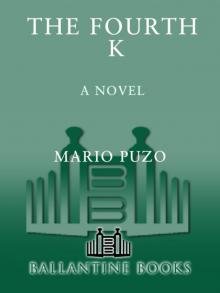 The Fourth K
The Fourth K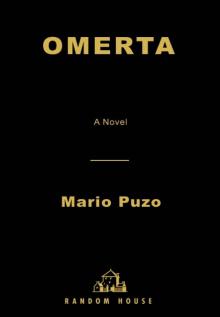 Omerta
Omerta Six Graves to Munich
Six Graves to Munich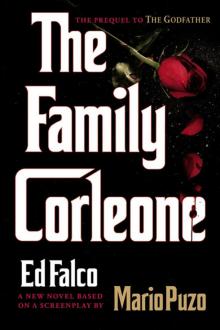 The Family Corleone
The Family Corleone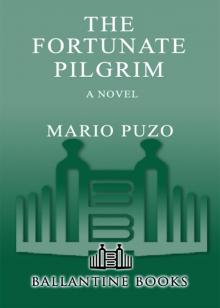 The Fortunate Pilgrim
The Fortunate Pilgrim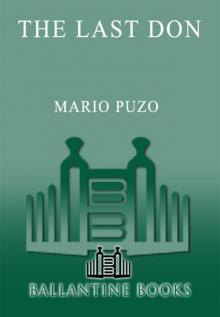 The Last Don
The Last Don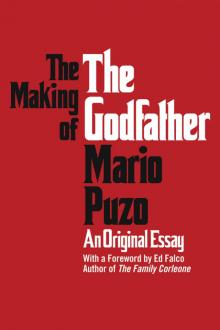 The Making of the Godfather
The Making of the Godfather Fools die
Fools die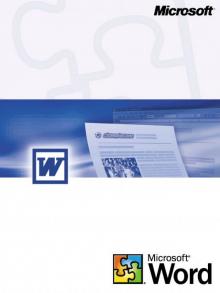 The Sicilian (v2.0)
The Sicilian (v2.0)